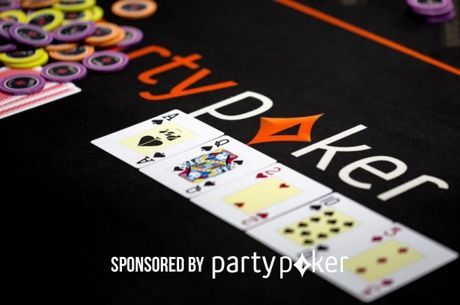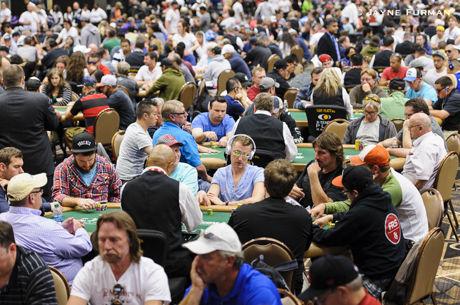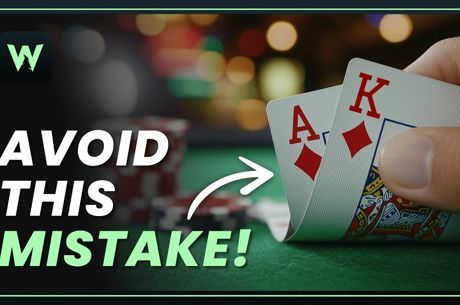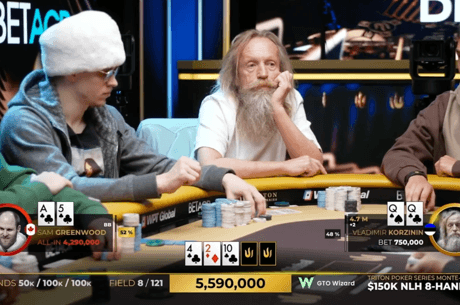Slow Playing Top Two Pair on an Uncoordinated Board

Here's an interesting hand I played recently in a $3,500 buy-in no-limit hold'em tournament at the Seminole Hard Rock in Florida.
At the 150/300/50 level I was dealt A♦9♥ in the cutoff. With a stack a little more than 75 big blinds deep I opted to raise to 750. Both of the blinds called and the flop came great for me — A♠9♣5♦, giving me two pair.
When you flop strong hands like this, one factor you want to consider before you start blasting away for value is how coordinated the board is. Here the flop isn't coordinated at all. There are no real draws out there (just gutshots or backdoor draws). Therefore when it checked to me I bet small, just 1,100 into the 2,700 pot.
The player in the small blind unexpectedly check-raised to 2,800 and the big blind folded. This could mean various things, although as I discuss below it most likely represents very strong made hands like Ax5x or better or draws.
My main thought when the action gets back to me is keeping my opponent in the hand while drawing very thin without tipping him off that I have a premium hand.
I called the flop check-raise. Take a look at how things proceeded from there, and listen to my analysis of the hand along the way:
How would you have approached this hand? Would you have jammed at some point before the river, or would you have played your big hand slowly as I did here?
Jonathan Little is a professional poker player and author with over $6,700,000 in live tournament earnings. He writes a weekly educational blog and hosts a podcast at . You can follow him on Twitter .









